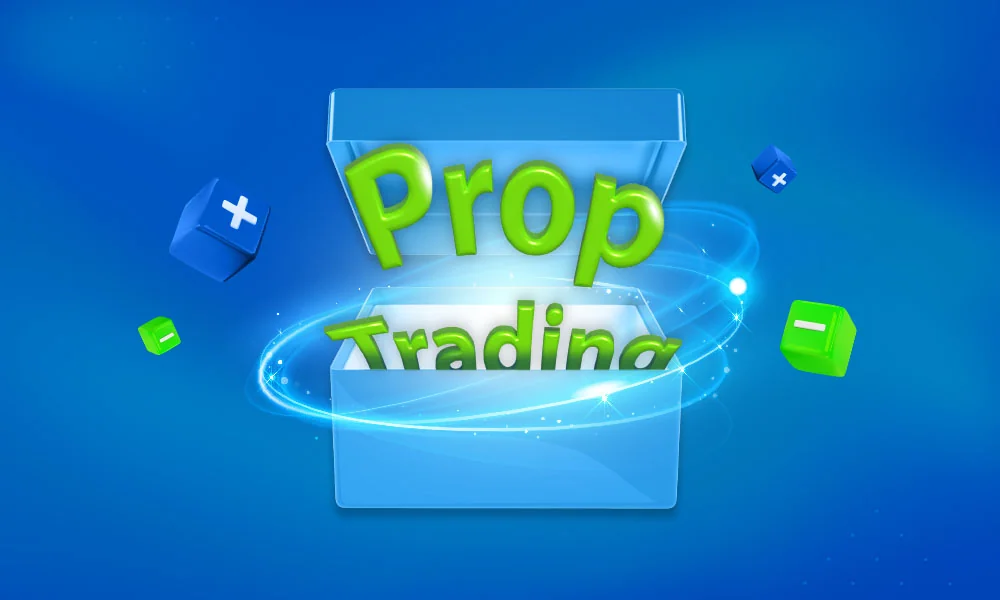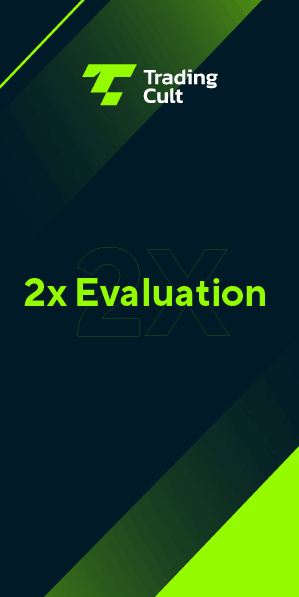
Have you ever dreamt of navigating the exhilarating world of finance with seemingly endless capital at your fingertips, executing lightning-fast trades in a fast-paced environment? If so, then prop trading might have sparked your curiosity. In this article, we at Trading Cult, your trusted guide to the financial markets, will demystify the world of prop trading. We’ll delve into its advantages and disadvantages, helping you decide if this exhilarating, yet demanding career path aligns with your aspirations.
What is Prop Trading and How Does it Work?
Prop trading, short for proprietary trading, involves trading financial instruments using a firm’s capital, not client funds. Prop traders are essentially employed by financial institutions like investment banks or hedge funds to generate profits for the firm. They trade various assets, including stocks, bonds, currencies, and derivatives, aiming to exploit short-term market opportunities within specific timeframes.
Prop trading desks are often characterized by a high-frequency trading (HFT) approach, utilizing sophisticated algorithms and cutting-edge technology to execute rapid trades and capitalize on fleeting market movements. These algorithms are designed to identify and capitalize on inefficiencies in the market, aiming to generate profits through arbitrage or scalping strategies.
The Allure of Prop Trading: Potential Advantages
Prop trading offers several potential advantages for aspiring traders, including:
Access to substantial capital: Prop firms provide traders with significant financial resources, allowing them to potentially make larger profits compared to trading with their own capital. This can be particularly appealing to individuals who are eager to amplify their earning potential and potentially achieve financial independence faster.
Fast-paced and dynamic environment: Prop trading desks are often characterized by a high-energy and fast-paced environment, which can be a major draw for individuals who thrive under pressure and enjoy the challenge of making quick decisions in a dynamic environment. This fast-paced nature can be incredibly stimulating for individuals who are highly motivated and adrenaline-driven.
Performance-based compensation: Prop traders typically earn a combination of salary and a percentage of the profits they generate, potentially leading to high earning potential for successful traders. This performance-based structure can be highly motivating for individuals who are driven by achieving financial success and are confident in their trading abilities.
Exposure to advanced trading strategies and tools: Prop firms often provide access to cutting-edge technology and sophisticated trading platforms, allowing traders to hone their skills and learn advanced trading strategies. This can be invaluable for individuals who are passionate about continuously learning and improving their trading acumen. Prop traders gain exposure to proprietary trading strategies, which may not be readily available to individual traders, and have the opportunity to work alongside other highly skilled traders and learn from their experience.
The Other Side of the Coin: Potential Drawbacks of Prop Trading
While prop trading may seem glamorous on the surface, it also comes with several significant drawbacks to consider:
High pressure and demanding work environment: The fast-paced nature of prop trading can be stressful and demanding, requiring long hours and intense focus. This environment may not be suitable for everyone, and individuals who are prone to stress or anxiety may find it challenging to thrive in such a setting. Prop traders often face tight deadlines and performance pressure, which can take a toll on their mental and emotional well-being.
Significant risk of loss: Since prop traders are using the firm’s capital, they are also personally liable for any losses incurred. This can lead to significant financial pressure and career repercussions in substantial losses. It’s a high tolerance for risk and a solid understanding of risk management principles. They must be able to effectively manage their emotions and avoid making irrational decisions under pressure to mitigate risk and protect the firm’s capital.
Competitive and challenging entry process: Prop firms are highly selective, and the competition for positions can be fierce. Aspiring prop traders often need to undergo rigorous assessments, including written exams, coding tests, and live trading simulations. They need to demonstrate exceptional trading skills, a deep understanding of the financial markets, and proficiency in risk management strategies. This can be a daunting barrier to entry for many individuals, and only the most qualified and skilled candidates will secure a position.
Limited job security: Prop trading careers can be volatile due to factors like market fluctuations and firm performance. Prop traders may face job insecurity and potential layoffs if the firm experiences losses. This inherent instability should be carefully considered before pursuing a career in prop trading.
It’s also important to note that the regulatory landscape surrounding prop trading has become more complex in recent years. The Volcker Rule, implemented in the wake of the 2008 financial crisis, restricts prop trading activities by certain banks in the United States. This has led to a decline in prop trading opportunities in some institutions.
Is Prop Trading Right for You?
Before diving headfirst into the world of prop trading, it’s crucial to carefully assess your individual circumstances and risk tolerance. Here are some key questions to ask yourself:
Do I have the temperament and discipline to handle the high pressure and demanding work environment?
Am I comfortable with the potential for significant financial losses?
Do I possess the necessary skills and knowledge to succeed in a highly competitive environment?
Am I prepared to dedicate significant time and effort to continuous learning and improvement?
By honestly answering these questions and thoroughly researching the industry, you can make an informed decision about whether prop trading aligns with your long-term career goals and risk tolerance.
Additionally, consider the following factors:
Educational background: While a formal education in finance is not always mandatory, a strong understanding of financial markets, economics, and quantitative analysis is highly beneficial.
Experience: Prior trading experience, even if in a different capacity, can be advantageous when applying for prop trader positions.
Personal qualities: Prop traders need to be disciplined, analytical, and adaptable. They must also possess strong communication skills and the ability to work effectively under pressure.
Conclusion: Weighing the Pros and Cons
Prop trading is a high-risk, high-reward career path that offers potential for substantial financial gain but also carries significant risks and demands. Carefully consider your individual circumstances, risk tolerance, and skillset before embarking on this challenging yet potentially rewarding journey. Remember, at Trading Cult, we are here to support you on your financial journey. We offer a wealth of educational resources and guidance to help you make informed decisions and achieve your financial goals. Whether you choose to pursue prop trading or another path, we encourage you to continue learning, developing your skills, and managing your risk effectively.




